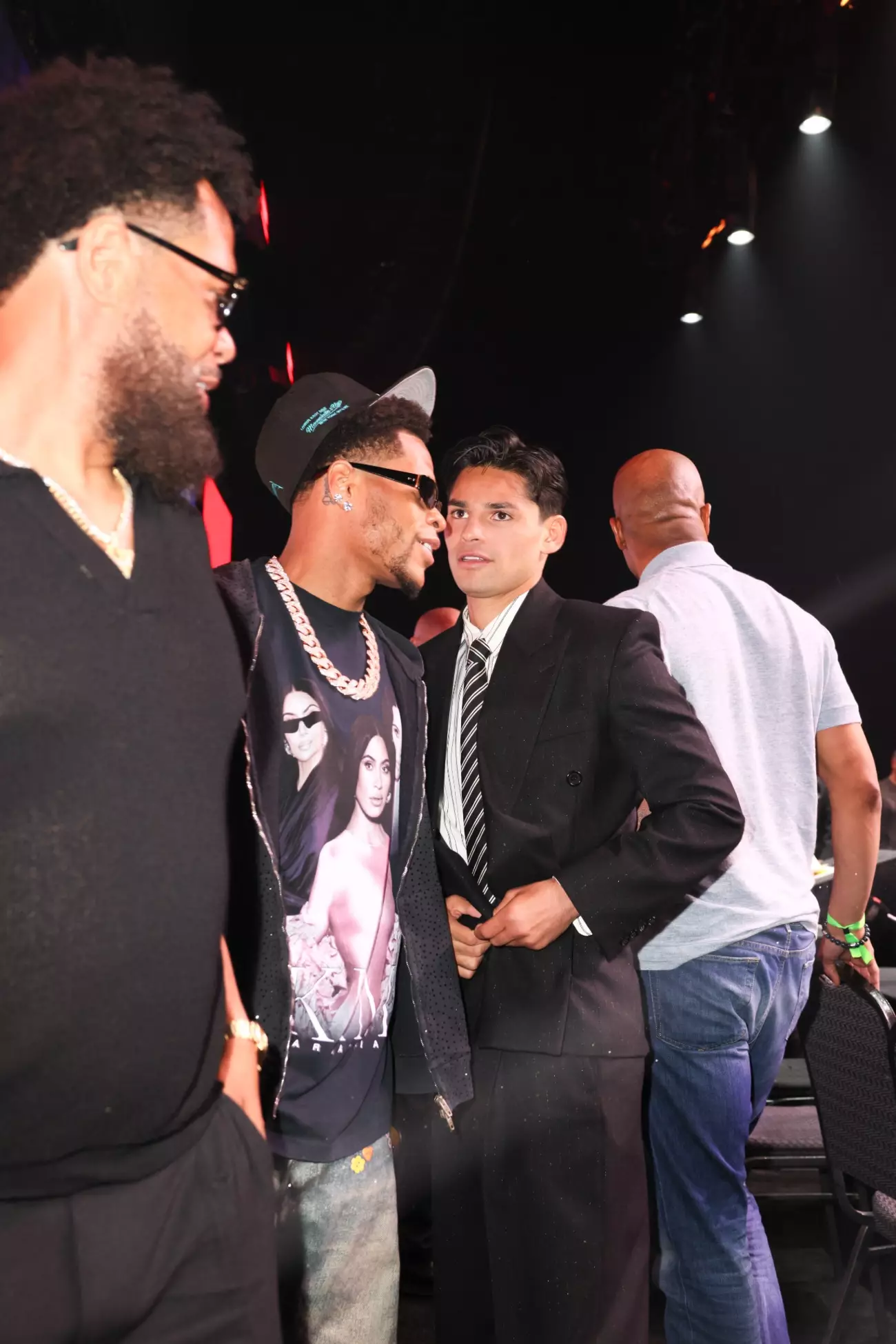The world of boxing is often characterized by its unique breed of drama, and the recent incident at the Fatal Fury final press conference encapsulates this chaos perfectly. The heated exchange between Bill Haney, father and manager of Devin Haney, and Ryan Garcia, orchestrated by the ever-controversial Oscar De La Hoya, serves as a reminder of how gladiatorial the sport can become, not just in the ring, but also at promotional events. It appears that tensions are simmering, fueled by underlying rivalries and personal animosities that could have far-reaching consequences for the fighters involved.
As Bill Haney seemingly took the bait from Teofimo Lopez, the exchange escalated, and soon De La Hoya was on his feet, ready to confront Haney. The clash was quickly quelled by security, but the incident raises questions about the mental and emotional state of the boxers and their teams as they head into their respective bouts. With the weight of history and ego hanging heavy in Times Square, one can’t help but speculate how this drama might affect the fighters come Friday night.
The Weight of Family Legacy
At the heart of this rivalry is Devin Haney, who finds himself at a crucial juncture in his career. De La Hoya’s comments about Bill Haney potentially ruining his son’s career add another layer of complexity to the father-son dynamic. It’s a relationship that exists not just within the confines of fatherhood, but also as a business partnership rife with expectation and pressure. While it may be easy for critics like De La Hoya to suggest that Devin should part ways with his father, the reality is that they share a bond that is as indelible as it is intricate.
Family dynamics in sports are often a double-edged sword. On one hand, a father figure can provide floundering athletes with guidance and support, but on the other, potential conflicts and a lack of objectivity can arise. Regardless of the outcome of Devin’s upcoming fight, the pressure stemming from familial relationships may linger far beyond the arena. Interestingly, De La Hoya’s disdain for Bill may reflect his own insecurities as a promoter. It is essential to analyze how much of his critique is rooted in genuine concern for Devin or merely competitive instincts overshadowing a more professional demeanor.
Turbulence and Expectations Leading Up to Fight Night
Questions abound regarding Devin Haney’s psychological readiness as he steps into the ring against Jose Ramirez. The resonance of past failures, embodied by his loss to Ryan Garcia, permeates the atmosphere. The specter of that fight, where Haney struggled and faced multiple knockdowns, casts a long shadow over his upcoming performance. De La Hoya pointedly remarked on the year-long hiatus since that bout, underscoring that returning from such a devastating experience isn’t just a physical challenge—it’s a mental hurdle as well.
Ramirez’s stature as a formidable opponent can’t be overstated. His reputation for delivering punishing punches hovers ominously over Haney as he gears up for the fight. If Haney underperforms or falls to defeat once more, the repercussions could be severe, not only for his win-loss record but for his relationship with his father and the future of his career. The planned rematch with Garcia is now hanging in the balance, illustrating how quickly fortunes can flip in boxing.
The Big Picture: An Industry in Flux
As captivating as individual rivalries are, they are merely snapshots of larger trends within the boxing realm. Today’s athletes are not just fighting against their opponents but also against the intricate web of business relationships, promotional pressures, and public perception. De La Hoya’s criticisms could also be interpreted as a form of self-preservation, a tactic rooted in promoting his own fighters by dismissing rival partnerships. The animosity between promoters and their personal feelings about competitors often add to a sense of chaos surrounding the sport.
In missing the deeper implications of Bill’s role in Devin’s life and career, either through familial obligation or managerial decisions, observers may underestimate the fight’s emotional stakes. In a sport that thrives on uncertainty, the outcomes are as unpredictable as the narratives surrounding them. The interplay between personal issues, promotional activities, and, most importantly, the boxers’ mental fortitude is what creates high-stakes drama in a world where every punch can alter a fighter’s destiny.
What happens in the ring remains uncertain, but the unfolding drama off it leaves us contemplating the very essence of what it means to truly compete, both as an athlete and as a member of a tightly-knit team that often borders on family. As fight night approaches, the only certainty in this globe-trotting saga of rivalries, struggles, and aspirations is that the stakes could not be higher.


Leave a Reply